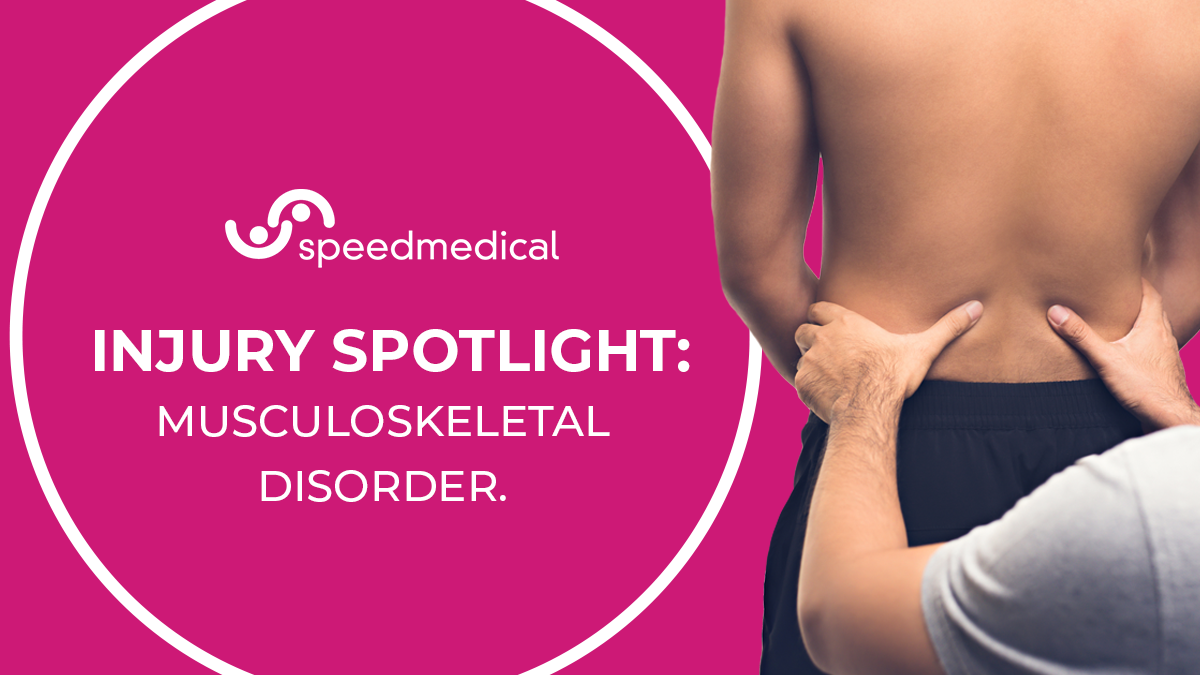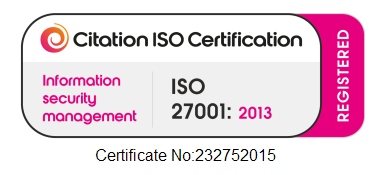

1 Feb 2022
Injury Spotlight: Musculoskeletal Disorder
Musculoskeletal Disorder is becoming a growing global concern. In the UK alone, more than 9.6 million adults suffer with the condition, leading to the NHS creating a Musculoskeletal 5 year prevention strategic framework with the goal of ensuring everything is being done to prevent MSD where possible. MSD is debilitating both physically and mentally, and it has a huge impact on our national health service, accounting for 25% of surgical interventions.
In light of the increasing number of people suffering with MSD, we’ve taken a closer look at the condition, and possible reasons for more and more people needing to seek treatment for this debilitating disorder.
What is MSD?
MSD or Musculoskeletal Disorder is a condition that “affects the joints, bones and muscles” in the back and affects up to 1 in 4 of the adult population in the UK. With over 9.6 million adults living with this condition that can greatly affect overall health and quality of life. MSD is a growing concern and prevention where possible is paramount.
MSD is also often linked to mental health. If someone is in constant pain and unable to move the way they used to, or do the things they want to do, it can have a huge impact on mood. “People experiencing persistent pain often report a negative effect on their mental health with feelings of anxiety and depression being common. This is because of the way the nervous system responds to pain. Unfortunately, this can lead to a vicious cycle.”
What are some common causes of MSD?
Causes of MSD include heavy lifting, repetitive tasks, working with display screen equipment such as laptops or tablets, working with power tools for a sustained period, and driving heavy vehicles. A poor work environment i.e., lack of space, incorrect equipment, no time to take breaks or move around, can hugely impact existing MSD symptoms or be the leading cause for a new diagnosis.
Have cases of MSD increased during the pandemic?
Many of us now work at home, but don’t necessarily have the correct setup to do this safely. With makeshift desks, or working from sofas or a bed, the number of cases of MSD are on the rise with a third of Britons experiencing increased back pain since the work from home order took effect.
The HSE has put out guidance on how to set up your workspace at home, which includes advice on supporting your back, ensuring your chair and your screens are at the correct height, and taking regular breaks, but for many it isn’t always achievable to have a dedicated work station in their home.
How can we prevent MSD?
As well as ensuring your work environment is as good as it can be, which includes correct desk setup, using personal protective equipment such as shoulder or knee pads where necessary, and ensuring you are using the right tools or equipment, it is incredibly important to move and stretch when possible. Some employers have implemented a company-wide move and stretch programme or offer online tutorials or classes for those working at home. There are also numerous yoga classes or simple stretching videos that we should all follow as often as we can.
How is MSD treated?
There are a number of treatments available for MSD including acupuncture, physiotherapy, steroid injections, therapeutic massage, pain relief, and occupational therapy. The management of MSD is often an ongoing journey and may involve multiple treatments. Depending on symptoms and severity, surgery may also be required.
At Speed Medical, we can assist you with booking appointments quickly and without delay. We’ll help you get to the root cause of any problem and find a solution and treatment. From beginning to end, we’ll be with you throughout your entire health journey.






